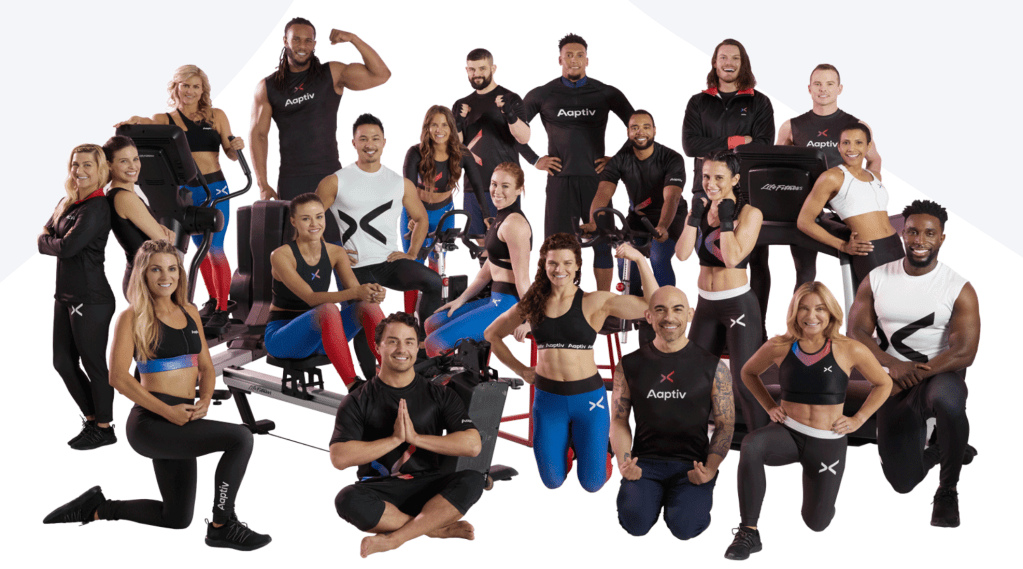Health and wellness has been one of the biggest categories for development in the tech industry, with huge range of wearable devices and connected equipment being built to track how we are moving and helping us stay fit. Now, a startup whose app offers users a selection of audio-based, personal-trainer-led workouts that also monitors users as they progress through them, has closed a major round of funding that underscores how software — and specifically apps — are also capitalising on that trend. Aaptiv, which makes what its founder and CEO Ethan Agarwal described to me as “the Netflix of fitness” — providing streams of music-based fitness training on demand — has raised $22 million in funding.
(It’s not the only big wellness software app that’s announcing funding today: Calm, the meditation app, announced a $27 million round of funding today, too.)
The Series C round brings the total raised by New York-based Aaptiv to $52 million, and while the company is not disclosing its valuation, sources close to it tell me that it is now over $200 million. The company has picked up 200,000 paying members in the last two years, and says that its audio classes have been streaming more than 14 million times.
The funding is significant not only because it will give Aaptiv some firepower to expand its product and user base further — more on that below — but also because of who is in this round.
It was led by Millennium Technology Value Partners (backer of illustrious tech names like Spotify, Facebook and Alibaba); with e-commerce investor 14W and Insight Venture Partners also participating. There is also a list of notable strategic investors, including Amazon’s Alexa Fund, Disney, Warner Music Group and NWS Holdings.
Investors say they were attracted by the company’s growth.
“We are most excited by how fast Aaptiv has established itself as a category leader in the wellness and fitness space,” said Ray Cheng, Partner at Millennium, in a statement. “The company’s growth and user engagement metrics over the past two years are some of the best we have seen, and we believe a large opportunity awaits as Aaptiv continues deliver the best in class workout experience.”
The strategic investors are likely to manifest in a number of ways. Agarwal noted that there was a lot of potential to develop training services that could work with Amazon’s Alexa voice-based assistant and more specifically Amazon’s Echo devices: bringing more sticky content to the platform is a priority, given that discovery and retention have already been highlighted to be big issues with this shiny new tech, and regular fitness workouts could be the “killer app” for some people. Similarly, as Amazon starts to offer more perks as part of its Prime subscription package, it will be interesting to see how and if it extends to fitness content, too.
“Connected fitness is emerging as a compelling new domain for consumers,” said Paul Bernard, director of Amazon’s Alexa Fund, in a statement. “We’re excited about Aaptiv’s voice-first approach to personal training and look forward to helping them explore innovative ways to bring that experience to Alexa.”
Warner Music also has a clear connection here, given that the workouts and other classes are all music-based, meaning Aaptiv needs to license that content (and Warner itself, like other music industry players, must be eyeing up the growth of podcasts and wondering how and where it might play in them).
Lastly, Aaptiv will become a part of the Disney Accelerator this summer as part of the entertainment giant’s investment.
In terms of the product, Agarwal says that today Aaptiv covers 22 fitness categories, from boxing to jogging to yoga, and it will be looking to expand to more. It’s also hiring a lot of engineers to help build out the data science component of the product: figuring out how to improve recommendations and better tailor classes to individuals. Today, the audio files are static — meaning a workout does not modify on the fly if you are hitting a wall or finding it too easy — but the longer-term intention is to bring this sort of technology to bear to make the experience more personalised, tapping into diagnostics that the app will pick up from wearables like the Apple Watch.
Where engineers will not be working, however, is in creating “trainers” that will design or lead workouts. While Aaptiv competes against the likes of ClassPass in providing a way for individuals to find and partake in more fitness workouts, the end point is never a physical class or group workout. It’s a digital-only, audio-based, training session with a personal trainer hired by Aaptiv to create it. That is not likely to change any time soon.
“We might the only people willing to acknowledge that we will not use AI to replace trainers,” said Agarwal. “The trainers create the classes and that will be always the same. That relationship and drive and the passion cannot be matched by anyone or anything.”
“As evidenced by their strong growth, Aaptiv is running toward becoming the next big name in the fitness tech market, due substantially to a rather advanced technology strategy and approach to growth,” said Harley Miller, Vice President, Insight Venture Partners. “We are thrilled to further our investment in Aaptiv and look forward to working together to continue scaling their innovative product.”































Comment